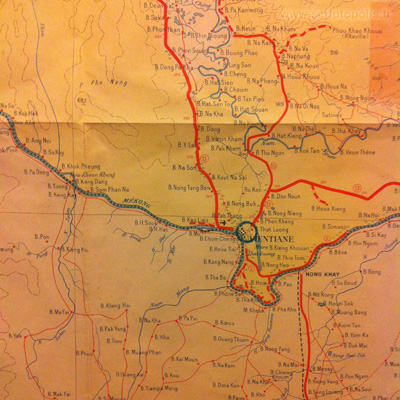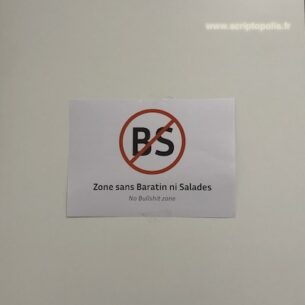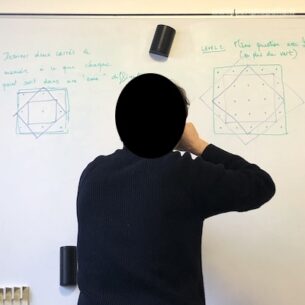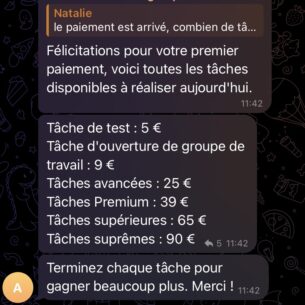From one memory to another

I remember the poster that used to be stuck up the wall of these lavatories. It was a painting, which I always found pretty ugly, autographed for your wife, my grand-mother. It had remained in place several years after she died. But one summer — the kids were playing with your hammock in the garden — I went in and saw two old maps instead. It took me a while to discover the country a parcel of which was facing me. They were not usual maps, quite technical actually. But once my eye catched the word Mekong above the blue line, everything went clear. These were maps from Indo-China, probably your own maps, which you used during this war you were involved in, just after World War II and just before an even dirtier one in Algeria. You didn’t talk a lot about it, but I could clearly remember then, still in the lavatories, a family lunch during which you said a few words about the Dièn Bièn Phu battle, impressive words.
I realized how meaningful these new decorations were. They were personal memories from older times. Before your wife would disappear, before your grand children would visit you with their own children. They were expressions of what probably had haunted you your all life. I stayed a bit more in the lavatories, looking at the lines, the colors, trying to imagine what they could mean for you. The death you could see in it. The friends you could remember through it. Fear, laughter, hatred. Certainly the most awful and the most beautiful things were lying on these precise technical drawings. Memories you probably had to keep silent for years, and you wanted now to be with you. Memories that no one could see but you.






